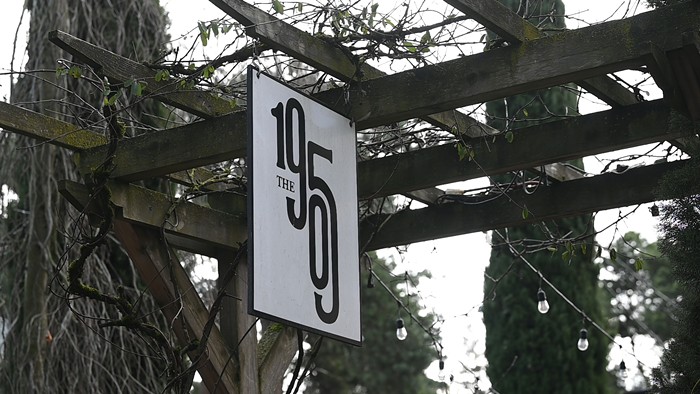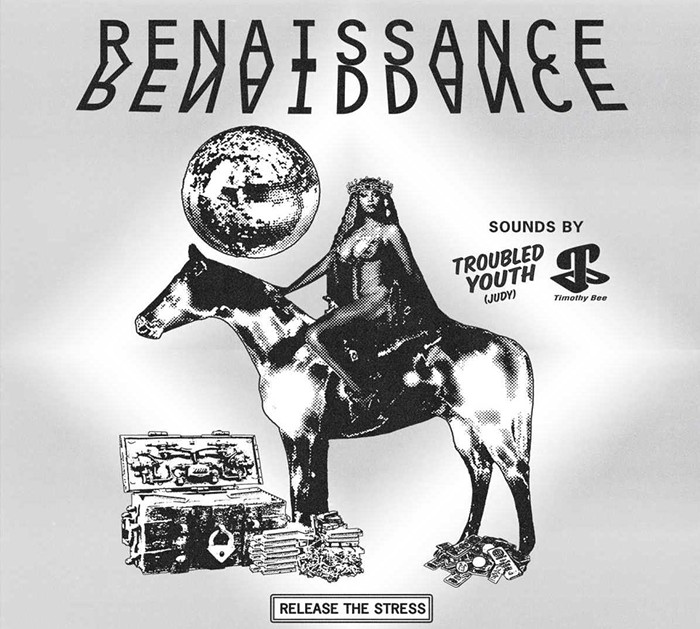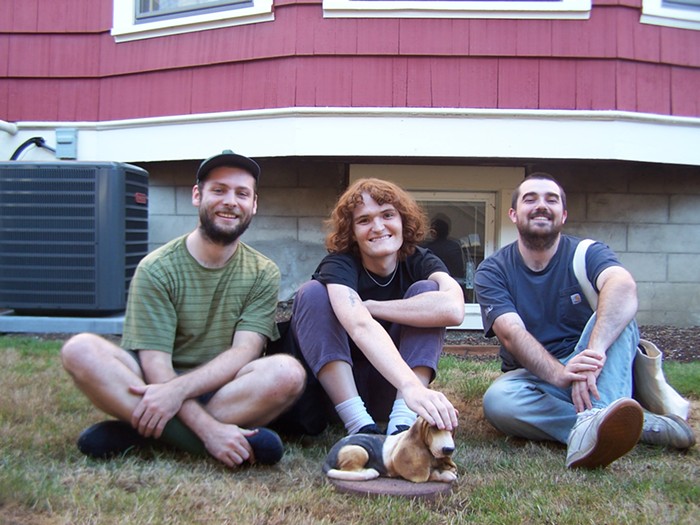HOLIDAYS WERE revered in my family. We spent the whole day together with few outsiders or other plans allowed. So, even though I'm almost 40 and live nowhere near my parents, I still can't shake the feeling that I'm being naughty somehow by spending part of Easter Sunday at the Cup & Saucer on Hawthorne with Portland singer/songwriter Rachel Taylor Brown.
The feeling is apparently mutual. Over our scrambles and ginger pancakes, Brown and I crack wise about breaking some unwritten rule on this holiest of days.
"This is what Jesus would eat," she says with a laugh, as she spoons some of her food onto my plate to share.
This little bit of sacrilege befits the subject she and I have gotten together to discuss: Falimy, her ninth album of artful pop that finds the multi-colored threads that connect glam with Broadway. As the intentional misspelling of its title hints, much of the album finds Brown wrestling with the notion of a traditional, nuclear family and realizing that, try as she might, she's never going to see it in the black-and-white terms of those stick figure stickers affixed to the back window of SUVs.
"Family is a slightly scary but sacred institution," she says. "Anything that's that revered by society as being impenetrable, whether it's religion or the family unit, is really dangerous and puts people in a really dangerous position."
That may sound weird and slightly conspiratorial, but Brown's upbringing was a tense and terrifying one. As a young child, she was sexually abused by an older brother.
So when Brown opens her new album with a jaunty Harry Nilsson-esque tune that bursts forth with a gospel-like choir singing "Let's have a family/We'll have a baby," it comes coated with a thick layer of irony. As does another highlight from Falimy, "Litany of the Family," a multi-tracked a cappella song on which Brown speak-sings photo captions as if they were a mantra: "Attractive family of four/attractive family of four/family at the lake/family adoring the woods."
"There are zillions of these photos," Brown says, "which means people want them and want to protect this image of the family. And to project this idea of family and how we want it to look to everyone else."
It's a view that Brown's family wanted to hold on to as well, even when she told her mother and siblings about what she had gone through. "I had this rosy vision of telling my mom and her going, 'There, there,'" she remembers. "Instead, the family reaction was, 'You're breaking up the family, you're killing the family.' That rejection was more damaging to me on a fundamental level than dealing with the abuse."
Understandably, Brown is estranged from her family, and has filled that void in part with the many musicians she collaborates with (including longtime producer Jeff Stuart Saltzman). Her inner circle, though, is tightly knit, including only her husband, Jay, and her younger sister, Katie.
As we finish our non-traditional Easter service, Brown emphasizes something all abuse victims reiterate: Even after all she has done, both through therapy and through her art, to come to terms with her past, she's still seeking answers.
"I don't think I'm proposing any kind of solution on this album. I understand the extreme good that comes out of that family unity. I have it and rely on it. But what do you do when horrible things do happen? What do you do to improve that and make it less likely to happen?"



















